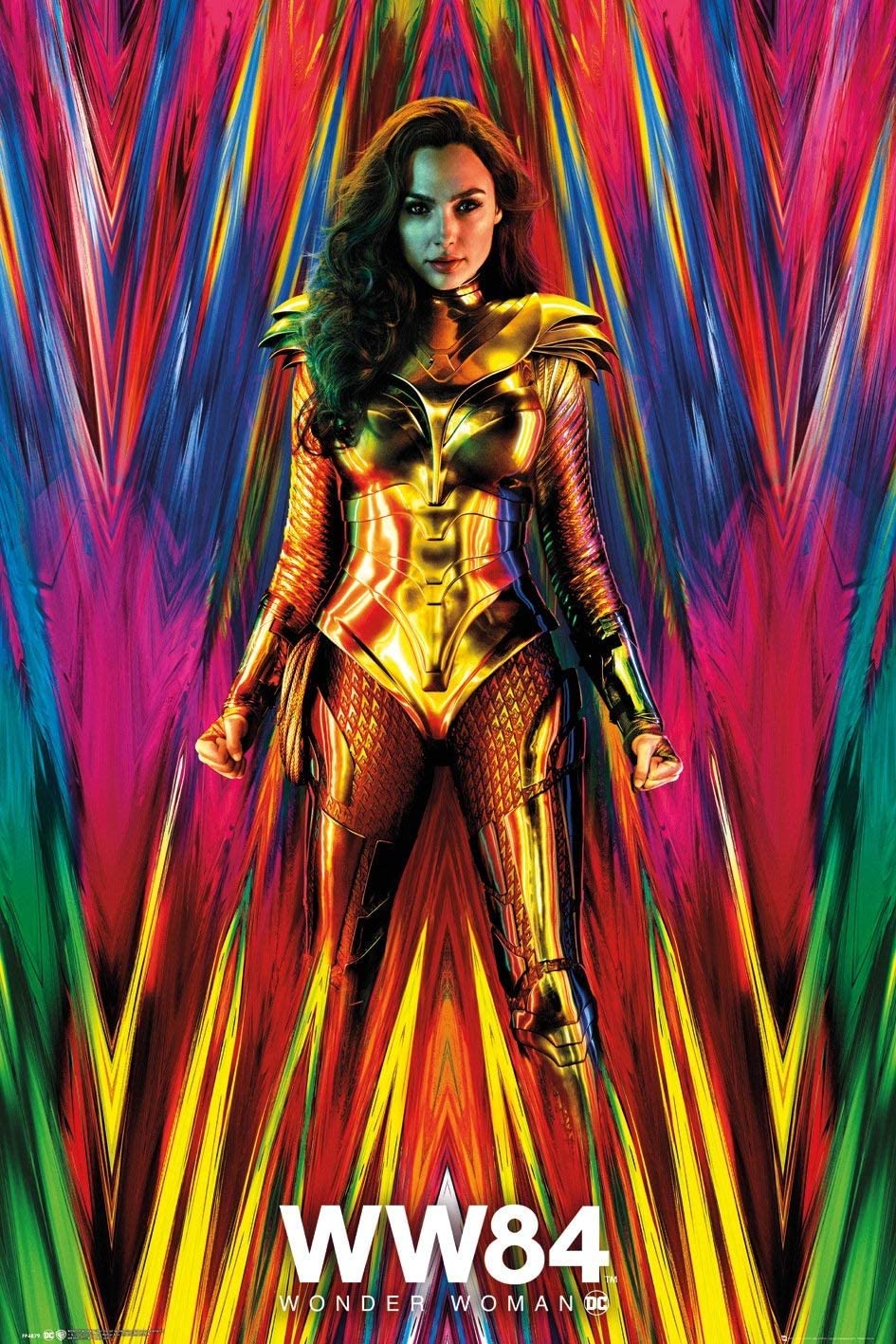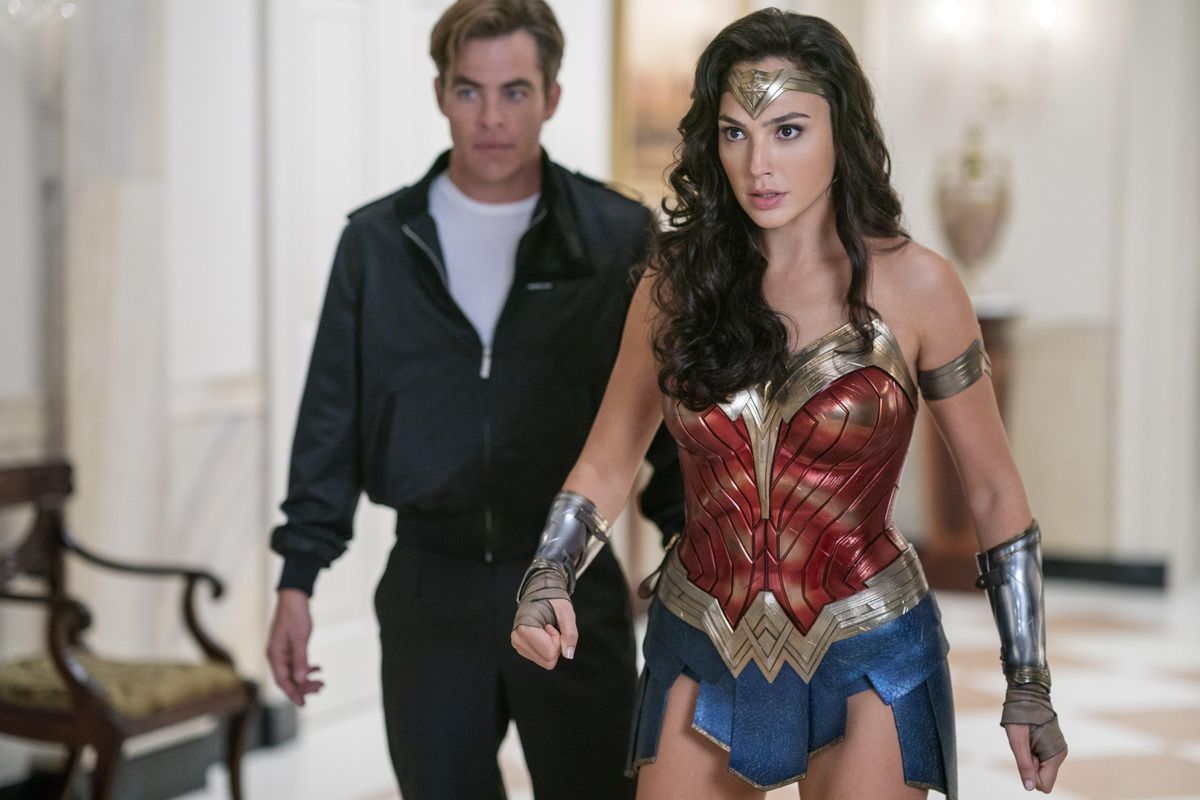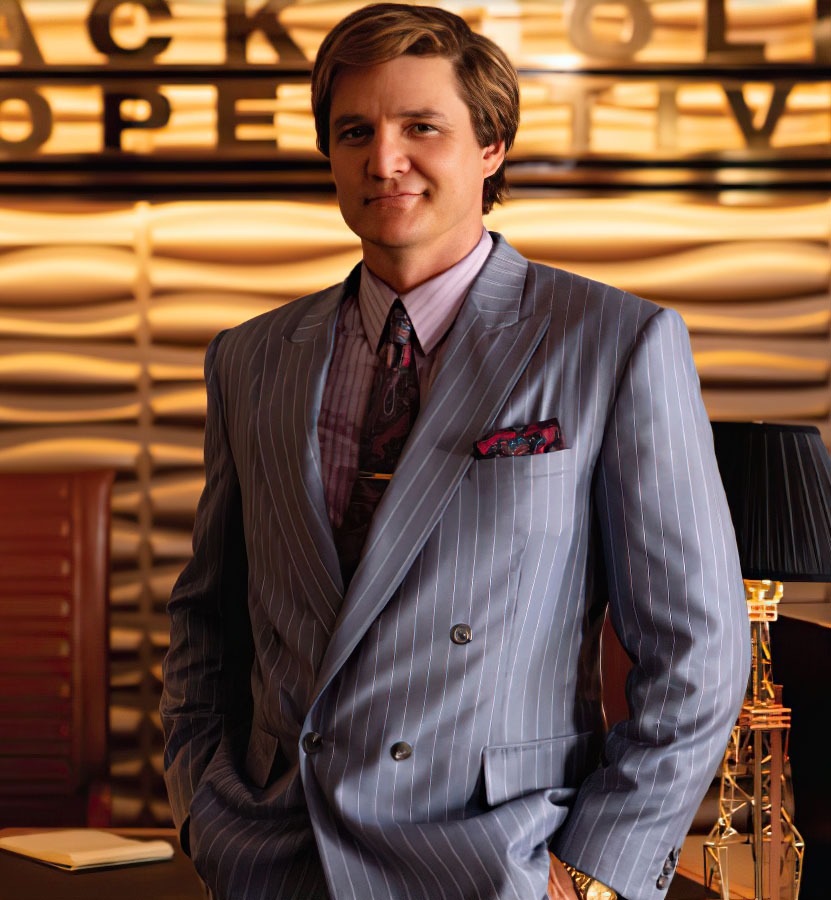Film Review: Wonder Woman 1984: The Truth Is That We Deserved Better
WONDER WOMAN 1984: THE TRUTH IS THAT WE DESERVED BETTER
By Christopher Henry
 “A male hero, at best, lacks the qualities of maternal love and tenderness which are as essential to a normal child as the breath of life. Suppose your child’s ideal becomes a Superman who uses his extraordinary power to help the weak. The most important ingredient in the human happiness recipe still is missing—love. It’s smart to be strong. It’s big to be generous. But it’s sissified, according to exclusively masculine rules, to be tender, loving, affectionate, and alluring. “Aw, that’s girl’s stuff!”, snorts our young comics reader, “Who wants to be a girl?”
“A male hero, at best, lacks the qualities of maternal love and tenderness which are as essential to a normal child as the breath of life. Suppose your child’s ideal becomes a Superman who uses his extraordinary power to help the weak. The most important ingredient in the human happiness recipe still is missing—love. It’s smart to be strong. It’s big to be generous. But it’s sissified, according to exclusively masculine rules, to be tender, loving, affectionate, and alluring. “Aw, that’s girl’s stuff!”, snorts our young comics reader, “Who wants to be a girl?”
And that’s the point; not even girls want to be girls so long as our feminine archetype lacks force, strength, power. The obvious remedy is to create a feminine character with all the strength of Superman plus all the allure of a good and beautiful woman”
-Wonder Woman creator, William Moulton Marston
These words were the motivation behind the world’s first super-heroine, Diana Prince, otherwise known as “Wonder Woman.” Created in 1941 by Harvard psychologist, William Moulton Marston, the character was intended to be “psychological propaganda for the new type of woman who should, I believe, rule the world.” His hope was to teach children and young adults that the “only hope for civilization is the greater freedom, development, and equality of women in all fields of human activity.”
For many, myself included, the character’s iconography is symbolic of more than just the fantasy element. Her image graced the very first cover of Gloria Steinem’s “Ms.” magazine, and for a very short period in 2016, the character was named “Honorary Ambassador for the Empowerment of Women and Girls” by the United Nations. While she exists in a world of fiction, the ideals and values that she represents have always been real. Within in a beautiful vessel of gold, red and blue, is an embodiment of feminism, equality, and a message of peace bolstered by a warrior’s tenacity.

While Marston viewed the comics as an effective medium to convey his message, one would argue that film and television have superseded their inefficiency. This is why it is staggering to learn that arguably our most culturally and socially significant superhero has been largely relegated to the sidelines when it comes to mainstream media representation until recent years. Her male counterparts enjoyed countless live-action interpretations while she received merely one short-lived but popular television show in 1975.
That was until 2017 when director Patty Jenkins was brought on board to direct Wonder Woman’s first big-screen solo film. At this time, the DC Extended Universe had been getting mixed reviews from critics and audiences alike. WONDER WOMAN delivered a fresh take on the character that was powerful, inspiring, and relevant. As a result, it was both a critical and commercial success, grossing $822 million worldwide.
The reception of the first film filled me with joy. The public was finally embracing a character that I had loved since I was 5 years old. People finally understood why she was so special. This is why it is massively disappointing to report that not only did this sequel not live up to expectations, but broke my heart. Directed again by Patty Jenkins, the film is set 67 years after the events of the first film. Diana (Gal Gadot) is working as an anthropologist at the Smithsonian in Washington, DC. She operates in secret as a superhero, destroying any recorded evidence of her presence and thought only to be an urban legend. She befriends her coworker, a lonely and awkward gemologist, Barbara Ann Minerva (Kristen Wiig). The two of them uncover an ancient stone imbued with the power of Dolus, the God of Lies. The stone grants a single wish, but with a price. It robs you of something you hold dear. Diana wishes for her departed lover, Steve Trevor (Chris Pine) to be alive once more. His spirit returns in the body of another man and their reunion is heartwarming, but the wish slowly begins draining Diana of her God-like powers. Barbara, envious of her friend’s beauty and confidence, wishes to be “just like Diana.” As an added bonus, she gains Diana’s abilities but at the cost of her humanity. During this time we are also introduced to Maxwell Lord, a failed businessman, and TV personality, desperately hoping to make his son proud. Lord has been attempting to retrieve the stone for some time, eventually conning his way into the Smithsonian to steal it. After wishing to become the stone itself, he’s imbued with the power to grant wishes to anyone he touches and take from them anything he chooses. Diana and Steve attempt to stop Max and save the world from wishing itself into an endless spiral of chaos and nuclear destruction.

Let’s start with the positives. The cinematography and tone of this film is a risky and ambitious choice. At times, it looks and feels as if it were filmed in the eighties. This was a bold choice by Jenkins and Cinematographer, Matthew Jensen. The color palette of the first film employed slightly desaturated colors to convey the grim feel of World War I. The sequel goes in the opposite direction by dialing the knob to ten, using bright and vibrant tones reminiscent of the neon time period. The bombastic colors, stunt work, and CGI harken back to the grand, hopeful superhero films like Sam Raimi’s SPIDER-MAN, and Richard Donner’s, SUPERMAN. There is a refreshing preference for wire-work over CGI, which lends itself nicely to the grace and agility of Wonder Woman, and much of the spectacle plays out beautifully when seen on the big screen. This is further enhanced by Hanz Zimmer’s score, which features some lovely callbacks not only to Wonder Woman’s theme but to other movies in DC’s continuity.
The performances from the four principal actors are stellar. The two villains are sympathetic and engaging. Kristin Wiig plays her character’s self-deprecation and loneliness with precision. When the character turns, losing her innate goodness as the result of her wish, Wiig handles the transition brilliantly. Her arc does come to a close rather abruptly, but perhaps this is a way to leave the door open for future installments. Pedro Pascal comes close to stealing the movie with his performance. He chews the scenery as a villain with grandiosity and pathos, so much so that the audience will find his resolution to be one of the emotional touchstones of the film. However, the heart of this story greatly hinges on the chemistry between Gal Gadot and Chris Pine. Gadot is the consummate depiction of Wonder Woman. Her natural warmth shines through in every scene and she really gets the chance to show more of her emotional range as an actress in this endeavor. Although Pascal comes close, the standout here is once again, Chris Pine. His effortless charm and comedic timing make him a joy to watch but the subtle way he emotionally anchors the scenes with Gadot is truly what makes him an underrated talent. It may be hard to swallow that anyone would still carry a torch for someone after 70 years, Chris Pine might just be the notable exception. Guided by Patty Jenkins’ sophisticated direction, he and Gadot provide the film’s greatest emotional set pieces, which nearly makes up for the lack of action set pieces.

Which leads us to the overwhelming negatives. Ultimately the biggest problem with this film lies in the screenplay. WONDER WOMAN was written by Allan Heinberg, with help from Zack Snyder, while WONDER WOMAN: 1984 was written by Geoff Johns and Patty Jenkins. The script is saturated with plot holes, pacing issues, and as another prominent screenwriter put it, “Too many payoffs without setups.” While some of these “payoffs” can be justified as nods to the source material, the reality is that it’s the movie’s responsibility to properly introduce these elements to the audience. As a result, the script’s logic contradicts itself one too many times to even constitute this as a nitpick. The story also suffers from pacing issues. There are entire sections of the movie that do nothing to move the story forward and merely add to an already lengthy runtime of 2 hours and 31 minutes. Adding insult to injury, there is an entire hour where we don’t see Diana AS Wonder Woman. This also could have been overlooked if the story was interesting enough to counter that, which sadly it wasn’t.
The movie’s well-intentioned message about the truth and sacrifice, unfortunately, gets undercut by the morally compromising issues brought upon by its protagonist. Steve is brought back to life but in the body of another man, reminiscent of QUANTUM LEAP. And yet the script completely ignores the fact that staying in this man’s body for the sake of this romance is wrong. In fact, what ultimately leads to Diana renouncing her wish is that the loss of her power means she is unable to stop Max Lord. It makes no mention of the fact that the man whose body Steve is possessing might have a life of his own. It’s a detail that darkly overshadows any message the film attempts to convey.

The most glaring problem this movie has is the issue of Diana herself. She’s a shadow of the hero we saw in the first film. Diana made active and compelling choices. Though bombarded by other characters telling her what she can and cannot do, she still makes her own choices. These choices not only advance the plot, but they succeed in showing over telling. We never have to be told that she’s strong, compassionate, and capable because she simply IS. But in WW84, the choices she makes are rarely meaningful nor do they move the plot forward. Even the hardest choice the film presents to her is a choice that Steve pushes her to make. The character I love would never risk mankind’s wellbeing or even consider relinquishing her ability to be a force for good, all for the sake of romantic love. This is made worse by the fact that instead of balancing her dual nature of peacemaker and warrior, the film removes the latter element almost completely. This doesn’t strengthen her message of love and forgiveness, it only serves to remove an important layer to her character. Wonder Woman isn’t a binary figure and she was never intended to be. Yes, her primary message is one of peace, but that was always emboldened by her willingness to fight for it when necessary. The character thrives when given complexity and nuance. She walks a tight rope of strength and ferocity while exuding compassion and grace. She is unrelenting yet merciful. Excising her assertive side and leaving only the passive, not only undermines her but greatly detracts from the action set-pieces in this film. And there were already too few, to begin with.
There is no one who wanted this film to be great more than I did. However, my personal connection to the character cannot absolve the issues of this movie, which are blatantly problematic. The lack of action and lengthy runtime could have been overlooked completely if the story weren’t completely disjointed and convoluted. The emotional moments, while effective, are woefully contradicted by decisions that not only compromise the character’s morality but her overall purpose.
As stated in the comics, “Wonder Woman is a mirror…a mirror of human truth. She reflects the contradictions of the world, of the person staring at her, and takes them onto herself. And gives you truth, love, and respect in return.” The movie’s message is that the truth is beautiful. However, in this case, the truth for me is heartbreaking. The truth is that despite perhaps the best of intentions, we deserved better. And all I can hope is that the sequel returns this franchise to its former glory.
